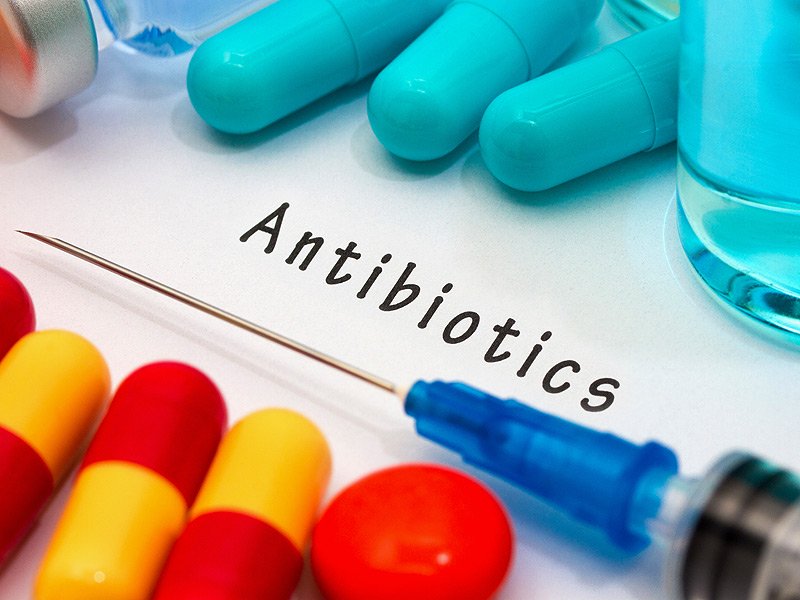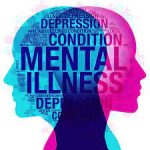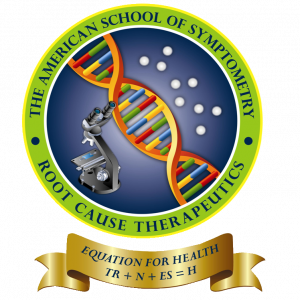
Dr. Maxwell Nartey
Professor of Symptometric Science, American School of Symptometry, NFP
World Center for Health Education and Scientific Enlightenment
An antibiotic is the first product that crosses the mind of every physician, dentist, or nurse who hears the word, “Infection”. They have been so indoctrinated about the importance of antibiotics that they feel they cannot do without them. This is not true. Safer options will be discussed shortly.
Symptometry steps back from the bacteriologists’ misinformation propaganda to think differently about microbes.
First and foremost, microbes were created just like we humans were created. Every creature gravitates naturally toward its food source. Humans, animals, fruits, root crops, and vegetables are the microbes’ food sources.
There are three kinds of microbes: a) opportunistic and pathogenic microbes b) rule enforcers and c) beneficial and health-enhancing microbes.
The opportunistic microbes only feed on their growth factor, which could be copper, nickel, iron, tellurium, selenium, mercury, etc. This could be in the eyes, vagina, scrotum, kidneys, ear, throat, etc.
To bacteriologists, there are only pathogenic microbes, and this is totally wrong. Unfortunately, it was the bacteriologist’s view that was taught in medical school from the 1600s to the 1900s and it continues to be taught in medical school to this day.
At the American School of Symptometry, NFP, all three kinds of microbes are taught. This is one of the differences between the teachings of the American School of Symptometry, NFP, and those of the medical school.
The colon microbiota
The beneficial and health-enhancing microbes are in the colons. We are born with them unless a pregnant woman is directed by her physician to take antibiotics a few weeks prior to delivery. Pregnant women who take antibiotics will compromise their baby’s colon ecosystem.
The colon bacteria produce ammonia, niacin, stercobilin, hypertonics, hypotonics, thiamin, phenol, skatol, riboflavin, biotin, pyridoxine, cobalamin (B12), choline, inositol, para-aminobenzoic acid, orotic acid (B13), pangamic acid (B15), laetrile (B17), etc. Ammonia must be circulated to the liver for conversion to urea.
All the raw materials that the pancreatic cells, liver cells, muscle cells, and nerve cells use to produce their essentials come from the colons. This is how our colon bacteria provide support to our brain, neuromuscular system, nervous system, bone marrow, immunity, and digestive system. Our melanocytes get their raw materials to keep the natural color of our skin and hair from our colons.
Additionally, all the joints and membranes get their raw materials from the colons. This is how important our colons are. The colons are filthy, but this filth is a treasure trove and gold mine for our colon bacteria. They turn waste into valuable resources and they repurpose every nutrient to its last atom before eliminating the rest as feces.
Therefore, doing colonics or colon irrigation works against the interest of our colons.
Our colon bacteria produce phenol to sanitize the colons, and they produce ammonia to poison and kill every pathogenic microbe that strays into the large intestine. Our colon bacteria are creative, super intelligent, resourceful, excellent anticipators, and master planners. People do not know a lot about our colon bacteria because bacteriologists kept the whole world in the dark until the inception of Symptometry. What about the rule enforcers?
The rule enforcers are on our skins, on the scrotum, and in the vagina, nose, mouth, throat, stomach, small intestine, bladder, nails, hair follicles, ears, and kidneys. They are enforcing the pH rule 24/7, and they mete out punishment to all violators without fear or favor. Streptococcus and staphylococcus are the two most prominent pH rule enforcers.
Merits of antibiotics
Antibiotics have a place in the enhancement of human health even though their role is temporary. There are briefly beneficial because they wipe out the pathogenic bacteria that prevent granulation, tear tissues, cause ulcers that won’t heal, prevent the breakup of bad gases, cause swelling, etc.
Etymology of the word antibiotics
The word “Antibiotics” derives from two words with the prefix “anti” meaning “Against” and “Bio” meaning life (against life). At first glance, antibiotics mean products that destroy the unit of life, and this unit of life is the cell, regardless of whether it is the cell of a root crop, a person, an animal, a leaf, a fruit, a bean, etc.
Considering the above, are there good antibiotics? No, there are no good antibiotics. Are there better antibiotics? No, there are no better antibiotics. Physicians, pharmacists, nurses, and dentists know this for a fact. Nevertheless, dentists and physicians routinely prescribe antibiotics because they have no other way of resolving tissue deterioration or infection.
Demerits of antibiotics
The downside of antibiotics is, they destroy the target pathogens as well as the cells and the essentials of the person using the antibiotics.
For example, they eliminate hydrogen from the systems and destroy the microtubules. Also, they disrupt osmosis and cause cell atrophy and necrosis because they make it impossible for certain cells to use water.
Can serotonin, melatonin, dopamine, norepinephrine, endorphin, enkephalin, substance P, muscle proteins, enzymes, etc. be produced without water? No, they cannot. What is extremely interesting about antibiotics is, their effect is not felt immediately. It is after a few weeks of use that their effect will begin to be felt. By then, it would have been too late to blame antibiotics for the harm they caused.
People do not blame antibiotics for their woes because they cannot make the connection between the antibiotics they took and their new diseases.
Since B vitamins are indispensable cofactors in the production of human enzymes, and vitamin K2 is essential for clotting and clot unraveling, a woman who uses antibiotics should expect to have:
- Enzyme production problems. Nothing in the human body is produced without enzymes. About 50,000 enzymes are needed to digest a meal consisting of starch, sugar, oil, fat, and protein. Two enzymes (kinase and cyclin) divide the cell. Thousands of enzymes called permeases modify nutrients so that they can penetrate each cell, and about 75 trillion cells make up the human body. Thousands of enzymes called isomerases rearrange nutrients in the templates. Helicase unwinds DNA, and so on and so forth. By destroying the colon bacteria that produce cofactors, antibiotics make it extremely difficult if not impossible for a woman on antibiotics to produce many enzymes. Plant enzymes are not human enzymes. Without enzymes, a woman cannot produce serotonin. Depression will occur in a woman who cannot produce serotonin.
- A hemorrhagic disease such as menses that will flow for more than six days, menses that will occur twice a month, heavy menses, bleeding for hours after a tooth extraction, bleeding copiously and abnormally after surgery, flooding after childbirth, etc.
- Circulatory problems due to clots that cannot unravel. Such clots (embolus) can block circulation to the retina, causing all kinds of retinal diseases. Also, they can block circulation, causing numbness, tingling, burning sensation, or crawling sensation. The brain relies heavily on good circulation. If clots block the flow of nutrients to the hippocampus, forgetfulness may occur, addictions may occur, etc. If clots block circulation to the fibers of the optic nerve, blindness may occur. If clots block circulation to the fibers of the auditory nerve, tinnitus or deafness may occur. If an embolus (clot) is stuck in the vein, venous circulation in the calf, thigh, nail, etc. will be compromised.
The far-reaching ramifications of the use of antibiotics have never been discussed in this manner because the overarching intent has always been to keep people in the dark as far as antibiotics are concerned. Antibiotic = anti-life. Here is what should be known about microbes.
If we do not want microbes to eat us alive, and exchange their toxins for our blood protein, we must follow the pH rule, and know how to live on this planet.
Microbes predate human existence on planet Earth. Bacteria produced enzymes to convert minerals to amino acids, starch, oil, fats, protein, and sugar to give us food, and they produced oxidase to join hydrogen with oxygen to produce water. Therefore, they have every right to call the shots.
Are there natural antibiotics?
Yes, there are natural antibiotics, but they are not called antibiotics because antibiotic is a trademarked term that belongs to the pharmaceuticals. Microbe fighters are simply called decimators such as bacteria decimators, protozoan decimators, fungus decimators, and virus decimators.
Natural chemicals such as Azadirachtin, Nimbolinin, Nimbin, Nimbidin, Nimbidol, Gedunin, Salannin, Quercetin, and Terpinen are the most prominent no-nonsense natural decimators. They are natural because they fill our white blood cells with so much vim, vigor, and fury that they will kill all pathogens on contact.
What is extremely interesting about decimators is, they differentiate human cells and essentials from the invaders, and they target and destroy only the invaders. I wished bacteriologists had known about them in the 1800s and 1900s. Anyway, it is too late now because their minds were already made up against all bacteria and they had concluded that there was nothing in the ecosystem that could help them fight bacteria, protozoa, viruses, and fungi.
Origin of the decimators
The decimators come from our life support system, which is the ecosystem. The ecosystem that provides us with food also provides us with decimators. All that is required of us is to use our intelligence, and analytical skills to find where they are, isolate and extract them, and use them. Bacteriologists chose to sit in their laboratory, design a formula for antibiotics and add alkyl and halogen to the final product. They chose this route, Symptometry chose natural science over laboratory science.
An insight into probiotics
There are all kinds of probiotics on the market. Are they useful to a person who takes antibiotics? Let us find out.
Of the 30 colon bacteria that antibiotics wipe out in one fell swoop, probiotics can replace only 3 strains within 3 days. They can replace 10 additional strains within three months under certain conditions. Unfortunately, it takes about three to five years to replace the menaquinone producers and the biotin producers. It is not clear when the mineral recyclers such as Lactobacillus gasseri, Lactobacillus rhamnosus, and Lactobacillus reuteri will be replaced. Until all the strains are replenished, the colons would keep suffering from deprivation stress.
Deprivation stress compels the colon bacterium called Lactobacillus bulgaricus to overproduce lactic acid. It is this excess lactic acid that will flood the mucus membrane, the mitochondria, and the synovial membrane to cause aches and pains, joint disorders, stiffness, sinusitis, and mucus in the throat, chest, lungs, stool, eyes, etc. Then, lactic acid in the mitochondria will cause fatigue.
I am explaining why probiotics may not repair the damage that antibiotics inflict on the cells and systems.
Therefore, it is wrong to assume that probiotics would repopulate the colons immediately after taking antibiotics for a week. Always remember that the menaquinone and biotin producers are the last to retake their place in the colons. This could take 10 to 15 years. Even some individuals die without these two strains taking their proper places in their colons.
Women be warned, especially those who take antibiotics willy-nilly because of chronic UTI, yeast infection, sore throat, etc. Consider the long-term effect of antibiotics on your cells and 11 systems before deciding to take antibiotics. There may even come a time when antibiotics will not be effective. Then, what do you do?
Should antibiotics be avoided?
Taking antibiotics should be the last resort. Even after taking them, it is advised to call Symptometry to ionize alkyl and halogen from the body. It is wrong to leave alkyl and halogen in the body.
Unfortunately, there are pregnant women who eat and live so chaotically that nothing can be done to make their babies healthy. Such babies will be born with a wretched immune system, digestive system, lymphatic system, neuromuscular system, etc. It is the course their DNA chose and this is the result, but if the parents want corrective action to be taken, Symptometry stands ready to provide it.
The idea that a child did not choose to come to this world is simply not true. We choose our parents and past circumstances dictate this choice. We have in us the power to turn our lives around. I turned my life around, and today, I am the founder of Symptometry, the American School of Symptometry, NFP, and Symptometric Science. This is not only historic. It is also phenomenal. You can do likewise.


 Next Post
Next Post